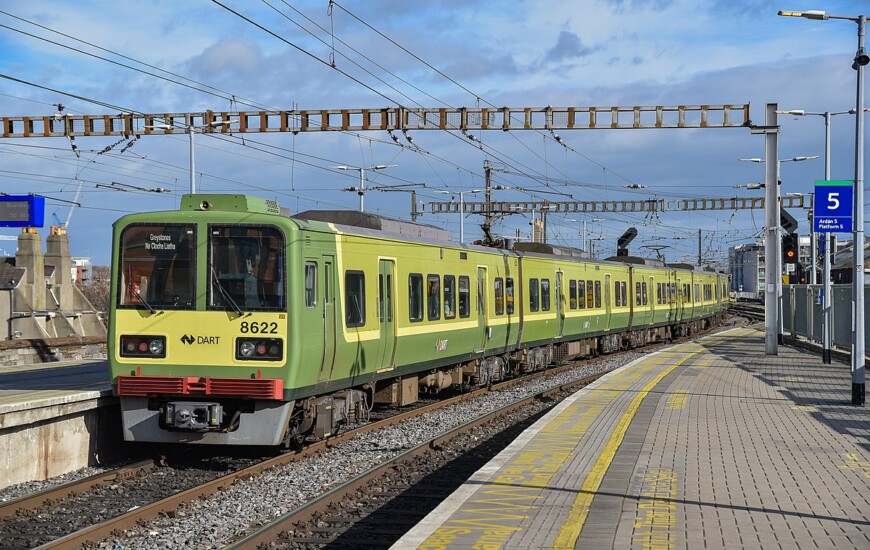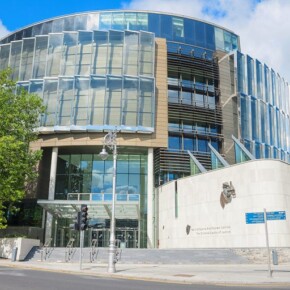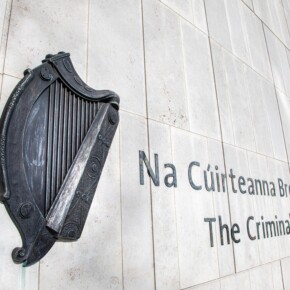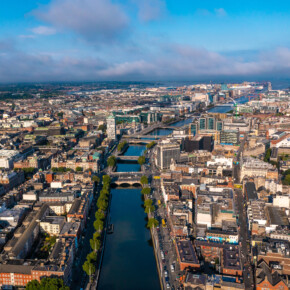Rail woes for Northside commuters amid timetable changes
Mike Finnerty 18 Sep 2024
Recent changes to the Irish Rail timetable have led to a wave of complaints from Northside commuters.
Changes to the Northern Commuter Line have caused frustration for commuters from Balbriggan, Skerries, Rush and Lusk, in addition to existing anxiety over potential cuts to services for commuters in Bayside, Sutton and Howth.
On August 26, changes to the Northern Commuter Line came into effect which led to a “domino effect” across the Dublin rail network.
“We have not seen such repeated delays or such widespread passenger anger in many years,” said Mark Gleeson, spokesperson for Rail Users Ireland.
“A single delay has a domino effect resulting in knock-on delays across multiple services which cannot be recovered.”
“More passengers must now change at Connolly resulting in longer journey times made worse by repeated delays and overcrowding.”
He said “Irish Rail needs to focus on operational discipline, ensuring trains depart exactly on time, 8am means doors closed and moving at 8am, not 30 seconds past. Every second counts, as it is all but impossible to recover time later.”
Fianna Fáil Senator Lorraine Clifford Lee added that the new timetable is causing “upset and frustration” for commuters, and instead of improving services, the new timetable has made things worse.
“People that rely on trains to get to work and college each morning are faced with delayed trains, having to get a connecting DART, overcrowded trains and platforms, large gaps in service during ‘rush hour’ periods and trains that do not align with school times to facilitate second level students.”
“The stated aim of the new timetable is ‘to improve punctuality across the network, ensuring a more reliable service for daily commuters’ but according to commuters on the Northern Commuter Line, it has done the opposite.
“I have been engaging with commuters on issues from everything to late trains, to less direct services and overcrowded trains and platforms,” the Senator said.
“People need to be encouraged to use public transport wherever they can. This new timetable means North County Dublin commuters are being disincentivised from using public transport and those with no other option face using an inconvenient and below par service.”
“Thousands of homes are being built in North County Dublin and services must be improved, not degraded, in conjunction with this.”
Howth-Malahide Fianna Fáil councillor Cathal Haughey said, “while the extension of the DART to Drogheda is welcome, it should not result in the loss of a Direct DART from, Howth, Sutton, Bayside and to the city and I will be strongly making this case to An Bord Plenála.”
Local Fianna Fáil Minister Darragh O’Brien has urged Irish Rail to reverse the changes, noting that the removal of the 7:24am DART service from Malahide is a specific point of contention among commuters.
“The removal will affect commuters from Malahide, Portmarnock and the Balbriggan to Donabate line.”
Elsewhere along the coast, local residents attended a meeting in the first week of September held by local Social Democrats TD Cian O’Callaghan and councillor Joan Hopkins, with the meeting hearing of strong local opposition to planned cuts as part of the proposed DART+ Coastal North services.
In August, the DART+ Coastal North services were outlined by Irish Rail, but concern sprung up almost immediately about the proposed replacement of direct DART services to Bayside, Sutton and Howth with a shuttle DART from Howth Station to Howth Junction and Donaghmede station.
The meeting, held at the Marine Hotel, heard that people with disabilities and limited mobility would be among those most impacted by the planned changes.
The meeting was told that local businesses would suffer as a result of the changes and would likely increase traffic congestion locally.
In recent weeks, a petition started by O’Callaghan calling for a reversal of the planned cuts has reached over 3,000 signatures.
“These changes will have a huge impact on residents and commuters and there is strong opposition in the local community,” O’Callaghan said.
Councillor Hopkins said, “in a climate emergency you don’t remove public transport and active travel modes.”
“People power will protect our direct DART service. We are demanding that common sense prevail here.”
Members of the public have until September 20 to make a submission to An Bord Pleanála regarding the proposed changes.
The railway order application website www.dartcoastalnorthrailwayorder.ie went live in July, and features all of the documentation as well as planned changes and routes.
The website also gives details of how to obtain hard and soft copies of all or some aspects of the documentation.
Members of the public, prescribed bodies and directly impacted landowners and occupiers have been invited to make submissions at a cost of €50.
The Dublin Commuters Coalition has questioned the objections to the changes.
They noted Dublin’s rail lines are limited to 12 trains per hour, and the only way to increase capacity, without putting more lines in, is to have connecting services, or close the level crossings.
“Our population is growing, the service needs to change with it,” they said.
“Just like with BusConnects, having a well-connected, more frequent service that has interchange points, will deliver a far better public transport service for everyone; retaining full direct service to Bray for every train to Howth will limit the commuter routes we can have,” they said.
They said that Howth Junction needs a “huge amount of work, especially when it comes to safety and facilities.”
“Howth having more connections to it every hour means they can hop on all commuter rail into the city centre, which will give them access to 12 trains per hour, instead of three.”
Chief Executive of Iarnród Éireann Jim Meade said in July that the upgraded rail plan will make travelling “more sustainable, more frequent and more reliable.”
“This is the third DART+ project to submit a railway order. The DART+ programme, when delivered, will truly revolutionise commuting in the Greater Dublin Area and assist in meeting Ireland’s climate action targets by reducing reliance on the private car and providing sustainable high frequency, high-capacity transport.”
Anne Graham, CEO of the National Transport Authority said “when we invest in transport infrastructure, we are investing in the future of Irish communities and their ability to access dependable, sustainable public transport alternatives.”
“Subject to planning permission and funding arrangements, construction works on the route could commence later this decade, taking circa three years to complete,” a statement from Irish Rail read earlier this year.











